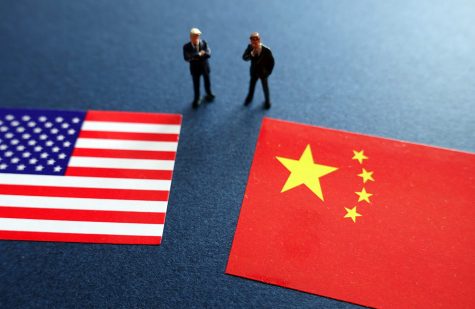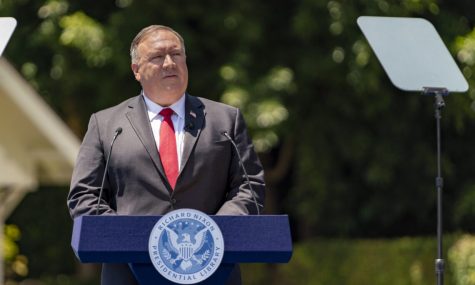China Rises, America Falls: Where Did It Go Wrong?
Beginning— an emergency maritime radio transmission to a US Navy aircraft carrier, 2004:
An unknown transmitter asked for the vessel, en route to Iraq, to adjust its course by 15 degrees in order to avoid collision. After multiple demands made by the transmitter, the commander of the battleship, on several occasions, vehemently requested for the transmitter to adjust its course instead. The only problem: the transmitter was revealed to be a stationary lighthouse.
In other words, the ship was instead en route to the rocks of the Spanish coastline.
The brash, if not lobotomized, behavior exemplified by the US commander has now transmitted itself to the highest levels of US diplomatic decision-making. Through a series of boldly misguided actions and a campaign to internationally self-isolate, the US is heading towards the rocks, and China has already begun to steer where we faltered.
 Isolation—Executive Order 13818 on December 10, 2017:
Isolation—Executive Order 13818 on December 10, 2017:
The President of the United States expanded the power of the Global Magnitsky Act, a piece of legislation enacted in 2012 that allows for the sanctioning of individuals on the basis of human rights violations. While on the surface the action seems perfectly benign, the implications for the broadening of executive discretion with sanctions have led to a weakening of their bite. Instead of individuals being qualified for sanctions if one commits “gross violations of internationally recognized human rights,” the legal requirement for action has been degraded to an ambiguous “serious human rights abuses”. This change clearly displays the United States’ shift toward unilateral action rather than those based on cooperative international policy. The more narrow quota for abuses would ensure that the United States was acting out of the benefit for all nations, not just the White House. Without the strength of many through a reliance on international precedence to determine sanction guidelines, the United States fights its battles alone, and alone it will stand against its forthcoming enemy—China.
Weakness—Annual Report on the Military and Security Developments Involving the People’s Republic of China to Congress:
The Department of Defense reports that China’s in the field of shipbuilding (its fleet outnumbering that of the US’s by a significant margin) and air defense systems, two very crucial elements to a long-distance Trans-Pacific war. Not only that, but China’s nuclear stockpile has also been planned to be extended to 200 DF-26’s, known ominously as “Guam killers,” within the near future. Later in the report, it cautions the public on China’s growing involvement in arms sales, peacekeeping operations, and “multilateral military exercises.” Almost all of which, America is beginning to lag behind in.
Hegemony—Dr. Tedros Adhanom’s meeting with Xi Jinping:
The Director-General of the World Health Organization states that he “appreciate[s] the seriousness with which China is taking this outbreak.” In the setting of a global health crisis, the United States has chosen to step down from the challenge on the global stage, formally announcing its withdrawal from the WHO. All the while, China cements itself as the largest-investing country of the now all-too-important WHO, yet another piece of leverage America is peaceably dropping and China is silently picking up.
 Aggression—Mike Pompeo’s speech at the Nixon Presidential Library on July 24, 2020:
Aggression—Mike Pompeo’s speech at the Nixon Presidential Library on July 24, 2020:
The Secretary of State repeatedly calls China a “threat” with “hostility to freedom” and that the United States’ primary goal as it pertains to China is to “induce change.” We’ve been caught with our pants down and the Secretary of State wishes to point a finger rather than pull his drawers up.
Catalyst—United States Illegal, Unreported, and Unregulated Fishing Strategic Outlook:
The US Coast Guard states that “China must exercise more responsible… control over its vessels” and is exhibiting “aggressive behavior on the high seas and in sovereign waters.” This document is, by far, the most frightening of recent revelations; it is a clear reminder that China is putting into effect policies that infringe on the sovereignty of other key American allies. With no sign of stopping, the ball is in the US’s court.
We now decide where to go at this impasse: to diplomatically make concessions and diffuse a bomb that could have world-altering repercussions or to engage in an active military conflict that would be, put lightly, an uphill battle. Do we try and plow our way through Spain to make our way to Iraq or do we regrettably steer away?

Jack Dougherty is a senior at Keystone who enjoys participating in Model UN and Academic Worldquest and has lately found himself in the midst of helping...

